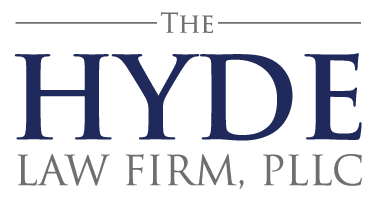Medicaid is the most common source of funding for long-term care and it is essential for families to understand the requirements.
The decision to place yourself or a loved one in a nursing facility for long-term care or planning for such an eventuality is already difficult enough without having to wade through misconceptions, trying to understand the eligibility requirements, and knowing what options are available to legally preserve assets in order to meet Medicaid eligibility; often necessary to afford the high costs of care.
The Hyde Law Firm specializes in Medicare and covers the entire state of Texas. We are centrally located in Granbury near the Dallas/FW area. We conduct a careful assessment of your financial situation to identify potential problems standing in the way of a successful application. Once the problems are identified, we offer solutions for each issue. Planning early and being prepared can make all the difference, so when the time comes all the details are already in place and you can focus on the emotional needs of your family instead of worrying about financial details. The Hyde Law Firm walks with you every step of the way.
Medicare & Medicaid – The Difference
There can be a lot of confusion between Medicaid and Medicare, so let’s discuss the differences.
Let’s dispel a few myths.
You can still apply, but are required to disclose assets transferred within a 5-year period from the date of application. Penalties will be applied for the transfers, but they vary based on the total value of the transfer. There are no penalties for transfers of assets between spouses.
Navigating the Medicaid application process can be confusing and frightening. Any time a nursing home becomes a genuine possibility for yourself or a loved one, having a qualified, experienced Texas Medicaid attorney that has your back is invaluable. The Hyde Law Firm can protect your assets, so both the person needing care and their spouse can avoid living at the poverty level and still qualify for Medicaid benefits.
Proper spend down can be a part of good planning, but Medicaid rules do not mandate the disposal of assets. You can also transfer assets and accept a penalty or buy exempt assets. Trusts set up in advance of applying are another option. A Medicaid Asset Protection Trust and/or a Qualified Income Trust can help you hold onto assets and income and not have them count against your eligibility. Planning ahead is essential for making the most of trusts. No matter where you live in Texas, our attorneys can assist you in planning for the future Medicaid needs of yourself and your loved ones.
Most states, including Texas, have a Medicaid Estate Recovery Program (MERP) that allows them to ask the family for reimbursement from the estate after death. Trusts can be created to protect the majority of your assets from falling victim to MERP and ensure the future of your heirs. In addition, the Texas Ladybird Deed allows the home to transfer outside of probate. It is no longer considered an asset of the estate and can’t be used by Medicaid to recover costs. Careful planning can prevent the loss of assets in the probate process. Call us to discuss your options.



